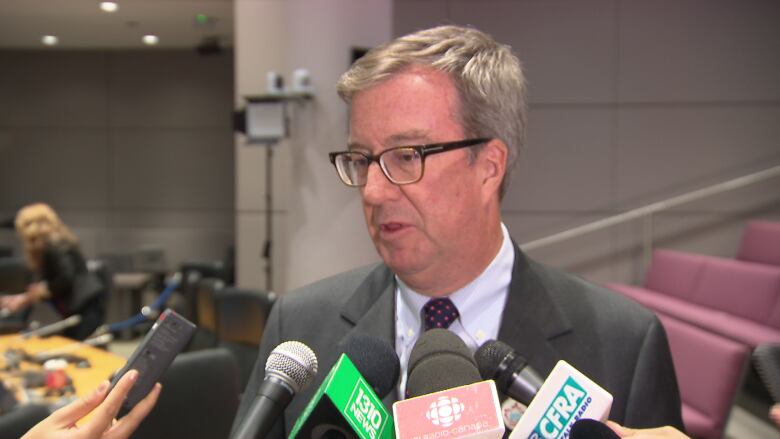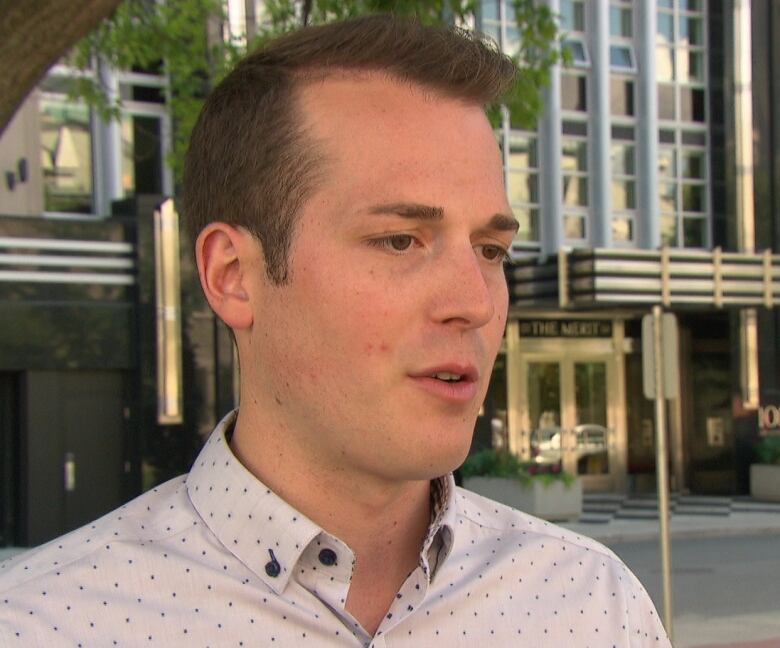Why the debate on making Ottawa officially bilingual won't go away
Every few years, it seems, some group campaigns for national capital to be declared officially bilingual

What's old is new again.
Or, in the spirit of bilingualism, plus a change, plus c'est la mme chose.
Every few years, it seems, some group or other is campaigning for the national capital to be declared officially bilingual.
This week, it's the Movement for an Officially Bilingual Capital of Canada, joined by six other Francophone groups, as well as Rideau-Vanier Coun. Mathieu Fleury.
On Monday evening, the University of Ottawa'sboard of governors passed a resolutionsupportingthe currentinitiative to officially recognize Ottawa as bilingual.
The next morning, the Montfort Hospital board added its voice to the growing chorus, while earlier this month, Liberal MP Denis Paradis who chairs theHouse of Commons standing committee on official languages opined he'dlike to see an officially bilingual national capital (although has no power to make it happen).
Mayor says capital is plenty bilingual
And once again, Mayor Jim Watson responded in his usual way: Ottawa is bilingual enough.
"We are a bilingual city," Watson told reporters Wednesday."We have many more fully bilingual staff that work inVanierthan work in West Carleton, but you can get served in West Carleton in the language of yourchoice."
And the mayor has a point.
Council passed Bylaw 2001-170 that says Ottawa residents have the right to communicate, as well asreceive city services in either English or French.
Watson calls it a "practical" bilingualism. Sure, it's not perfect. There are complaints about the city's French-language services 114 official ones in 2014, many about lack of French official tweets and signage, as well as difficulty getting children's recreation programs in French in certain parts of the city but it generally works well.
And theparties pushing for official bilingualism agree! Their major request is that the city's bylaw be enshrined in the City of Ottawa Act, a piece of provincial legislation. This would make it difficult, or at least more difficult, for some less progressive council in the futureto strike down the city's bilingualism bylaw.
It shouldn't cost the city money, nor should it cost any non-French speakers their jobs.
"If it's such a great policy, why not confirm it in our act?" asks Fleury, a Franco-Ontarianwho's taken a vocallead in the campaign.
"For the simple reason, we're already doing it," says the mayor, continuing this very circular argument. "So it's not necessary."

Council once voted to make city officially bilingual
But clearly, to many people, it is necessary.
It's important to them that the French language be protected and making Ottawa officially bilingual would be not just a meaningful symbol, but provide some measure ofsecurity for their language rights.
It's why the issue keeps coming up again and again.
And here's a little deja vu: council had once agreed toask the province toaddbilingualismto our city's act. Itvoted 16 to sixin favour of itback in 2001, when councilfirst passed the bylaw. But the province never acted on the issue, not the PC government in its final years in power, nor Dalton McGuinty'sLiberal governmentof which Watson was a member.
So perhaps our mayor's stance on this issueshould come as no surprise.
What do we fear?
Here's what most people don't want to say openly. Startingup abilingualism debate will likely be anemotional, divisive, ugly mess.
And while the Movement for an Officially Bilingual Capital calls for enshrining the city's bylaw language in the act, it also wants the "equality" of the English and French languages recognized. That's not language currently included in the bylaw, and no doubt causes some to fear the slippery slope: five years from now, will a provincially entrenched law provide cover fora greater demand for more bilingual services?
How does "equality of French and English" differ from a right to receive service in either official language?
This is why people have kept their heads down, muttering about practical bilingualism whenever this comes up.
Polls indicate support for bilingual capital
But the argument may not be going away so quietly this time.
The number of groups speaking up in favour of official bilingualismin recent daysgive the appearance of something of a movement.
And public opinion may just be on the side of official bilingualism. A Nanos survey commissioned by the movement folks showed 72 per cent of respondents"support" or "somewhat support" Ottawa becoming officially bilingual, as long as it doesn't cost money or jobs. (Support drops a bit without the caveat, but is still a majority.)
And earlier this year, theOffice of the Commissioner of Official Languages of Canada commissioned a national poll that showed 87 per cent of telephone survey-takers and 73 per cent of online respondents agreed the nation's capital should be recognized as officially bilingual. (Thesurveys have a margin of error of +/- 3.6 and +/-3.1per cent, respectively, 19 times out of 20).
Councillorworking to make it happen,up to a point
And Fleury is working with the bilingualismgroup to convince council to ask the province for the protection.
These folks have visited most councillors they have six to go pleading their cause and case, including that Francophones are moving to other, non-traditionally Frenchparts of the city, as federal departments relocate.
The urban core and eastern councillors appear onside, but Fleury said he won't move ahead with the issue unless he has "a solid majority" of 17 councillors behind him.
"This is not meant to be a battle," saysFleury.
If he loses this battle, the war will surely continue. Look for the next skirmish ina few years.












_(720p).jpg)


 OFFICIAL HD MUSIC VIDEO.jpg)
.jpg)



























































































